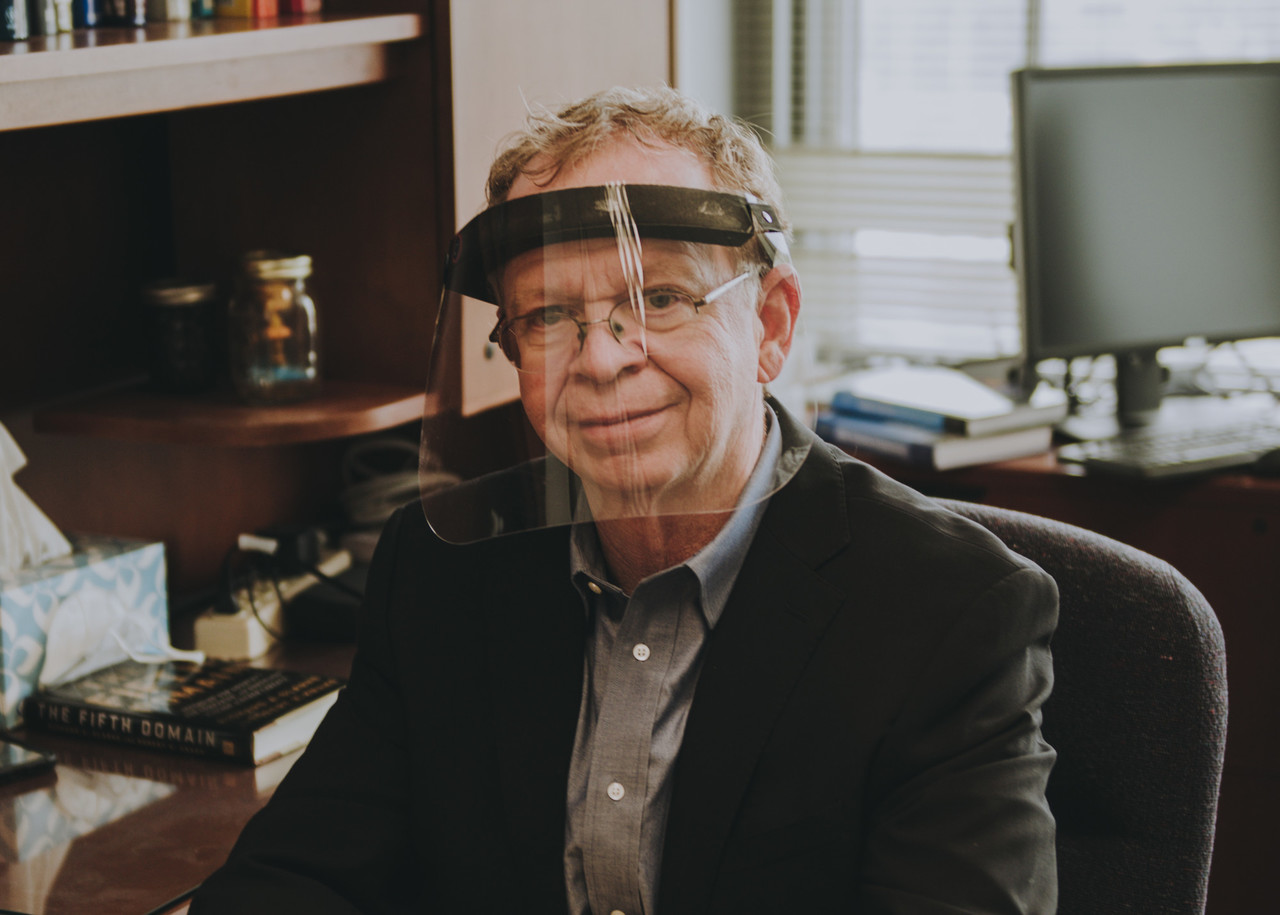Jeffrey H. Reed named chief technical officer for Commonwealth Cyber Initiative
“Jeff literally wrote the book on software-defined radios and is extremely respected by researchers in academia, industry, and government for his expertise in wireless communications,” said Luiz DaSilva, executive director of the Commonwealth Cyber Initiative.

Notable entrepreneur and Virginia Tech professor Jeffrey H. Reed has joined the Commonwealth Cyber Initiative (CCI) leadership team as its inaugural chief technology officer.
“Jeff literally wrote the book on software-defined radios and is extremely respected by researchers in academia, industry, and government for his expertise in wireless communications,” said Luiz DaSilva, executive director of the Commonwealth Cyber Initiative. “As interim executive director, Jeff helped steer CCI in its early days. His experience with commercializing new technology will be a great asset and we are privileged to count on his advice.”
Reed, the Willis G. Worcester Professor of Electrical and Computer Engineering in the College of Engineering at Virginia Tech, co-founded PFP Cybersecurity, a company that produces embedded security products using patents licensed from Virginia Tech. Reed was the founding faculty member of the Ted and Karyn Hume Center for National Security and Technology and served as its interim director during its first year.
With former Hume Center Director Charles Clancy and former Virginia Tech faculty Bob McGwier and Joe Mitola, Reed co-founded Federated Wireless in 2012. The company, based in Arlington, Virginia, leads the implementation of spectrum sharing in the 3.5 GHz band, has raised $140 million, and employs more than 80 people. Additionally, he is the founding director of Wireless@VT, a network of Virginia Tech faculty and students that conducts pioneering research that impacts next generations wireless networks and technologies.
Joining CCI, a network of higher education and industry experts created to build an ecosystem of cyber-related research, innovation, and workforce development, was an easy choice for Reed because he believes in the initiative of solving cybersecurity challenges and helping Virginia become a powerhouse in cybersecurity that will position the state as a world leader in cybersecurity and cyber-physical systems.
“I’m hoping CCI will change the way the state views its educational and research endeavors as its influence could extend beyond its initial intent,” said Reed. “The initiative represents a new way for universities to collaborate on research and brings together Virginia’s best researchers to go after large initiatives. I hope to see the approach adapted to other areas of research.”
Traditional approaches to cybersecurity simply do not work as well anymore, Reed said. Groundbreaking approaches are required, especially when new technologies, such as 5G, promise to become part our daily lives. It is one reason why CCI includes machine learning, AI, and other disciplines in its approach to solving tough cybersecurity problems, he said.
Reed envisions Virginia becoming a national and global focal point for cybersecurity jobs, research and collaborative endeavors. The state already has an advantage due to its proximity to the Washington, D.C., metro area, but availability of talent is a key component to creating a sustainable ecosystem. “We need to follow the example of Silicon Valley and build the talent in Virginia,” Reed said.
CCI’s top current challenges include establishing processes, setting up programs, and cultivating opportunities, said Reed, adding he expects these necessary steps to pay off in two years. His expertise as an entrepreneur means he knows a good deal when he sees it. “CCI is a clear winner.”
Reed was named a Fellow of the Institute of Electrical and Electronics Engineers in 2005 for his contributions to software radio and communications signal processing and leadership in engineering education. He also received the International Achievement Award from the Wireless Innovations Forum. In 2012, he served on the President's Council of Advisors of Science and Technology Working Group that examines ways to transition federal spectrum to allow commercial use and improve economic activity.
Reed earned his bachelor of science, master of science, and doctoral in electrical and computer engineering from the University of California, Davis.




